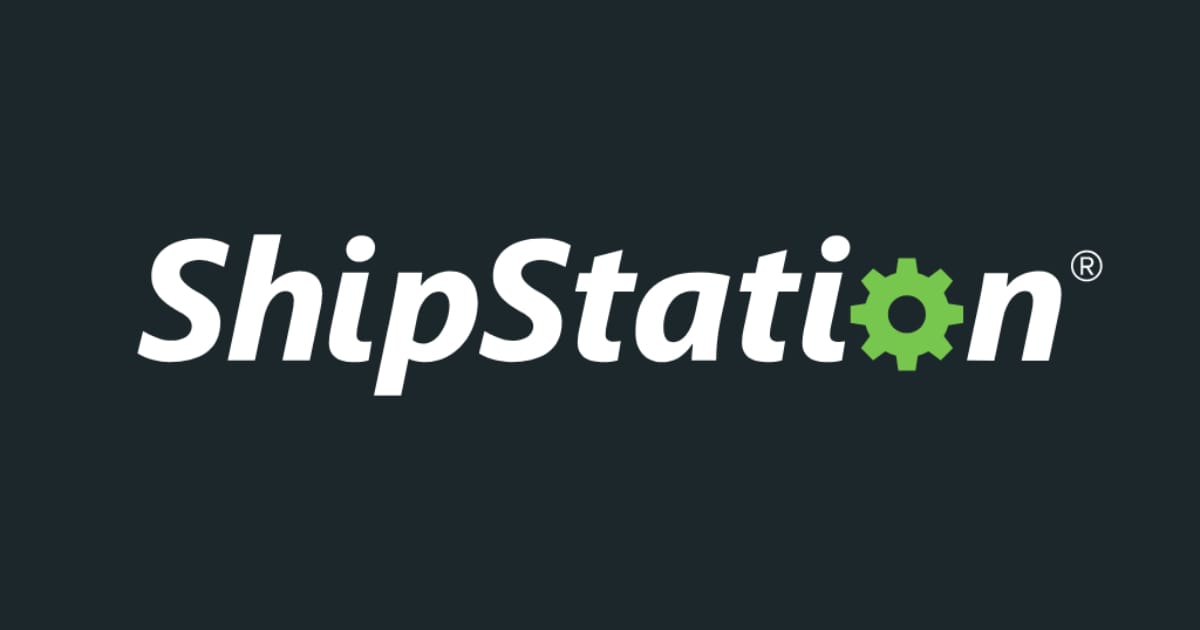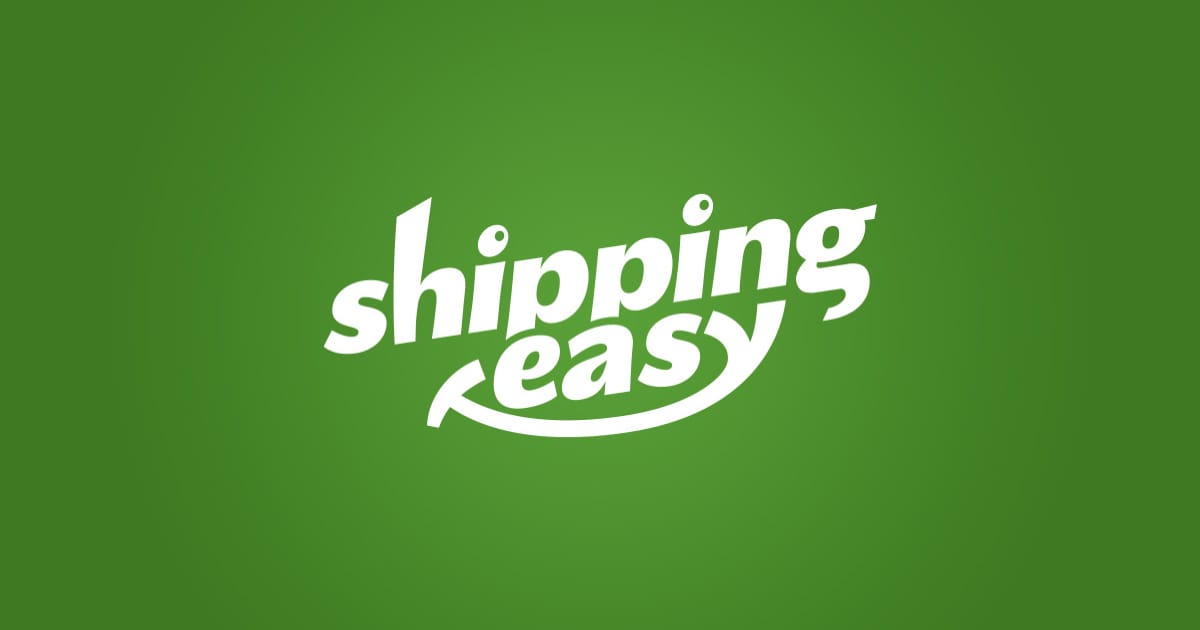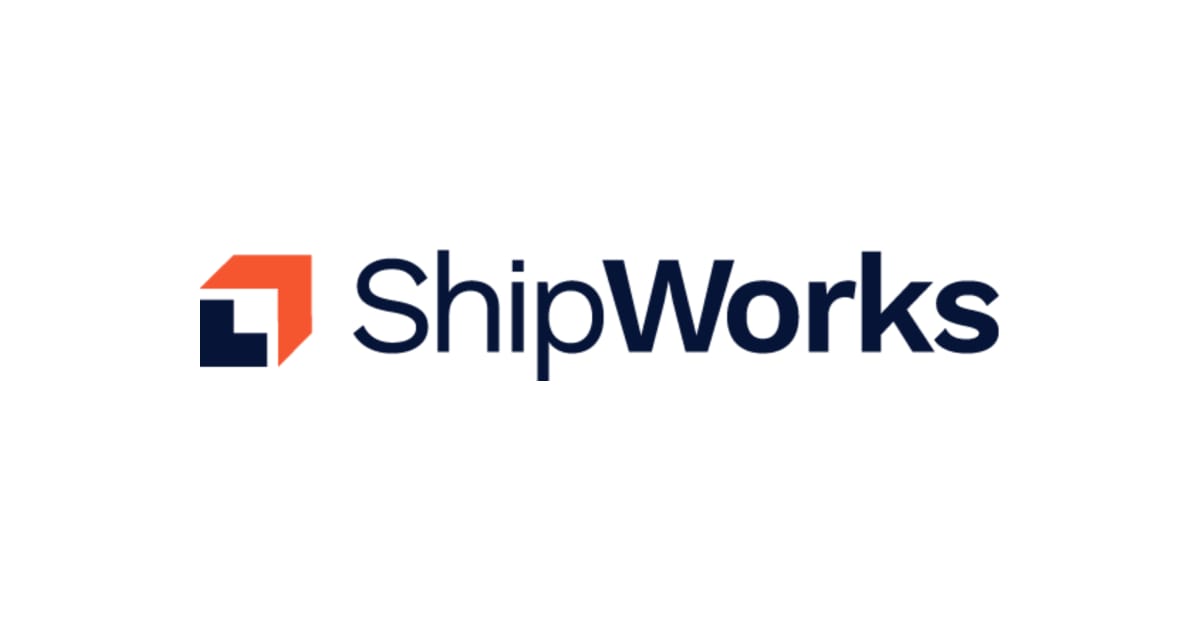5 Best Shipping Software for E-Commerce (2024)

Efficient shipping operations are the backbone of a successful business. As customer expectations continue to rise, streamlining order fulfillment processes has become paramount. With the right shipping software, businesses can automate tasks, reduce costs, and provide exceptional customer experiences that foster loyalty and drive growth.
From seamless carrier integrations and real-time rate comparisons to advanced tracking features and customizable workflows, the best shipping solutions offer a comprehensive suite of tools to optimize every aspect of the shipping journey. In this article, we'll explore the top five shipping software options that can revolutionize your e-commerce operations, helping you stay ahead of the competition.
ShipStation

Overview and History
ShipStation is a web-based shipping software helping e-commerce retailers automate order fulfillment. Founded in 2011 in Austin, Texas, ShipStation addresses challenges faced by online merchants manually processing orders across multiple sales channels and shipping carriers. Its software integrates with e-commerce platforms, marketplaces, and carriers, allowing businesses to import orders, process shipments, print labels, and automate customer communication from one interface. ShipStation has grown to serve over 100,000 e-commerce businesses worldwide, expanding features and integrations to meet industry needs, becoming a trusted shipping solution for online retailers.
Key Features and Services
- Order Management: Import orders from multiple sales channels into a centralized interface.
- Shipping Rules: Automate shipping workflows with customizable rules based on order details.
- Shipment Processing: Generate shipping labels, packing slips, and pick lists with a few clicks.
- Rate Shopping: Compare real-time shipping rates across multiple carriers to find the best option.
- Inventory Management: Sync inventory levels across sales channels and manage product information.
- Customer Communication: Send automated shipping notifications and tracking updates to customers.
- Reporting & Analytics: Access detailed reports and insights on shipping metrics, costs, and performance.
- ShipStation Fulfillment: Outsource order fulfillment to ShipStation's warehousing and shipping services.
- ShipStation Onsite: Self-hosted shipping solution for businesses with strict data security needs.
- ShipStation Mobile Apps: Stay connected and manage shipping operations on-the-go.
- ShipStation Connect: Pre-built and custom integrations with e-commerce platforms, ERPs, and other business systems.
- ShipStation Support: Dedicated customer support, training resources, and developer documentation.
Fees and Pricing Structure
- Starter Plan: $9.99/month
- Ideal for low-volume shippers
- Includes up to 500 shipments per month
- Bronze Plan: $49/month
- For growing businesses
- Includes unlimited shipments
- Silver Plan: $99/month
- Designed for high-volume shippers
- Includes additional user accounts and advanced features
- Enterprise Plan: Custom Pricing
- For larger businesses with complex needs
- Includes custom onboarding, dedicated support, and advanced customizations
All plans include core features like order management, shipment processing, rate shopping, and customer communication. Higher-tier plans offer additional benefits such as:
- More user accounts
- Advanced shipping rules and customizations
- Branded packing slips and emails
- Enhanced reporting and analytics
ShipStation also offers additional services at extra costs:
- ShipStation Fulfillment: Starts at $5 per order + shipping costs
- ShipStation Connect: Custom pricing based on integration complexity
- ShipStation Onsite (self-hosted): Quote-based pricing
Pros
- Centralized Order Management: ShipStation consolidates orders from multiple sales channels into a single interface, streamlining fulfillment processes.
- Automation and Time-Saving: Features like shipping rules, rate shopping, and automated customer notifications help save time and increase efficiency.
- Integrations: ShipStation integrates with a wide range of e-commerce platforms, marketplaces, and carriers, providing seamless connectivity.
- Scalability: The platform can accommodate businesses of various sizes, from small startups to large enterprises, with its flexible pricing plans.
- Reporting and Analytics: Comprehensive reporting and analytics tools provide valuable insights into shipping metrics and performance.
Cons
- Learning Curve: Setting up ShipStation and configuring advanced features can have a learning curve, especially for users new to shipping software.
- Limited Free Trial: ShipStation offers a 30-day free trial, but some users may find it too short to fully evaluate the platform.
- Additional Costs: While the core shipping features are included in the subscription plans, additional services like ShipStation Fulfillment and custom integrations can add extra costs.
- Limited Customization: While ShipStation offers customization options, businesses with highly specific requirements may find the platform limiting.
- Potential Downtime: As with any cloud-based software, ShipStation may experience occasional downtime or service disruptions, which could impact shipping operations.
ShippingEasy

Overview and History
ShippingEasy is a user-friendly software designed to simplify the shipping process for e-commerce businesses. Launched in 2011, it has become a popular choice among online merchants for its ability to integrate with various shopping carts, marketplaces, and carrier accounts. This platform streamlines the order fulfillment process by offering features like discounted postage rates, automated shipping rules, bulk label printing, and detailed tracking updates. Over the years, ShippingEasy has expanded its services to include inventory management, customer marketing tools, and insightful analytics to help businesses grow. Its commitment to making shipping fast, affordable, and efficient has made it an indispensable tool for small to medium-sized e-commerce sellers.
Key Features and Services
- Multi-Carrier Shipping: ShippingEasy integrates with major carriers like USPS, FedEx, UPS, DHL, and more, allowing merchants to compare rates and choose the best shipping option.
- Automated Order Import: Orders from various e-commerce platforms, marketplaces (Amazon, eBay, etc.), and shopping carts can be automatically imported into ShippingEasy for seamless fulfillment.
- Batch Shipping: Merchants can process and ship multiple orders simultaneously, saving time and increasing efficiency.
- Discounted Real-Time Rates: ShippingEasy negotiates discounted shipping rates with carriers, providing merchants with competitive pricing options.
- Branded Packing Slips and Labels: Businesses can customize packing slips and shipping labels with their branding for a professional look.
- Inventory Management: ShippingEasy offers inventory tracking and management features to help merchants stay organized and avoid stockouts.
- Reporting and Analytics: Detailed reports and analytics are available, providing insights into shipping costs, carrier performance, and other metrics.
- Customer Management: ShippingEasy allows merchants to store customer information, track orders, and manage returns efficiently.
- Integration with Popular E-Commerce Platforms: ShippingEasy integrates with platforms like Shopify, BigCommerce, WooCommerce, and more for seamless order management.
Fees and Pricing Structure
ShippingEasy offers a range of pricing plans to cater to businesses of different sizes and shipping volumes. Here's an overview of their fees and pricing structure:
- Monthly Subscription Plans:
- Basic Plan: $9.99/month (for up to 500 shipments per month)
- Plus Plan: $49.99/month (for up to 3,000 shipments per month)
- Pro Plan: $99.99/month (for up to 10,000 shipments per month)
- Enterprise Plan: Custom pricing based on shipping volume
- Pay-As-You-Go Plan:
- No monthly subscription fee
- $0.19 per shipment label printed
- Additional Fees:
- USPS Commercial Base Pricing: ShippingEasy negotiates discounted USPS rates for their customers, which are typically lower than retail rates.
- Carrier Account Fees: Some carriers may charge account fees, which are passed on to the merchant.
- Optional Add-Ons:
- Address Validation: $0.02 per address validated
- Branded Packing Slips: $0.05 per packing slip
- Custom Branding: $99/month for custom branding on the ShippingEasy interface
- Enterprise Solutions:
- For high-volume shippers or businesses with custom requirements, ShippingEasy offers enterprise-level solutions with custom pricing and dedicated support.
Pros
- Multi-Carrier Integration: ShippingEasy integrates with major carriers like USPS, FedEx, UPS, and DHL, providing merchants with a wide range of shipping options and rate comparisons.
- Automation and Time-Saving: Features like automated order import, batch shipping, and inventory management streamline the fulfillment process, saving businesses time and improving efficiency.
- Discounted Shipping Rates: ShippingEasy negotiates discounted rates with carriers, helping merchants save on shipping costs.
- Branding and Customization: Merchants can customize packing slips and shipping labels with their branding, promoting a professional image.
- Reporting and Analytics: Detailed reporting and analytics provide insights into shipping costs, carrier performance, and other key metrics, enabling data-driven decision-making.
- Integration with E-Commerce Platforms: ShippingEasy seamlessly integrates with popular e-commerce platforms like Shopify, BigCommerce, and WooCommerce, ensuring a seamless order management process.
Cons
- Pricing Structure: While ShippingEasy offers a range of pricing plans, the fees can be higher for smaller businesses with lower shipping volumes, making it less cost-effective.
- Limited Free Plan: ShippingEasy's free plan is quite limited, with restrictions on the number of shipments and features available.
- Learning Curve: The platform can have a steeper learning curve for users who are new to shipping software, requiring some time and effort to fully utilize its features.
- Potential Hidden Costs: Additional fees for services like address validation, branded packing slips, and carrier account fees can add up, increasing the overall cost for merchants.
- Customer Support: While ShippingEasy provides support resources, some users have reported occasional difficulties in getting timely or satisfactory assistance, particularly for more complex issues.
- Integration Limitations: While ShippingEasy integrates with many popular e-commerce platforms, some niche or custom platforms may have limited or no integration options.
Ordoro

Overview and History
Ordoro is a cloud-based order and inventory management platform designed to help e-commerce businesses streamline their operations. Founded in 2010 and headquartered in Austin, Texas, Ordoro aims to provide a comprehensive solution for businesses of all sizes to manage their sales channels, inventory, shipping, and other aspects of their online operations from a single dashboard. Over the years, the company has expanded its feature set and integrations with various e-commerce platforms, marketplaces, and shipping carriers to cater to the evolving needs of online retailers.
Key Features and Services
- Order Management: Ordoro allows businesses to centrally manage orders from multiple sales channels, including online marketplaces like Amazon and eBay, as well as their own e-commerce websites.
- Inventory Management: The platform provides real-time inventory tracking and synchronization across all connected sales channels, helping businesses avoid overselling and stock-outs.
- Shipping Integration: Ordoro integrates with major shipping carriers like USPS, FedEx, and UPS, enabling businesses to compare rates, print labels, and track shipments from within the platform.
- Dropshipping: Ordoro supports dropshipping operations, allowing businesses to automatically route orders to their suppliers for fulfillment.
- Kitting and Bundling: Businesses can create product kits and bundles, making it easier to manage and sell related or complementary items together.
- Reporting and Analytics: The platform provides various reports and analytics tools to help businesses gain insights into their sales, inventory levels, and overall performance.
- Accounting Integration: Ordoro offers integrations with popular accounting software like QuickBooks and Xero, facilitating the synchronization of sales data for streamlined bookkeeping.
- Customer Support: Ordoro provides customer support through various channels, including email, phone, and an online knowledge base.
Fees and Pricing Structure
- Express Plan: This plan focuses primarily on shipping features, including barcode scanning, branding options for labels and packing slips, automation for a streamlined workflow, and access to discounted USPS shipping rates. It emphasizes ease of use and efficiency in handling shipping tasks.
- Premium Plan: Priced at $149 per month, the Premium Plan is designed for businesses in need of more advanced capabilities. It includes unlimited shipping labels, the lowest shipping rates from top carriers, and unlimited users, sales channels, and ship-from locations. Additional benefits like Quickbooks Online integration, API access, and more are included to support rapid growth.
- Add-On Modules: Ordoro also offers specialized modules for businesses needing specific functionalities. The Merchant Carrier Module starts at $50 per month, the Inventory Management Module at $350 per month, and the Vendor Portal Module begins at $1,000 per month.
Pros
- Customer Support: Ordoro has received high praise for its customer support, with users appreciating the responsiveness, helpfulness, and knowledgeability of the team.
- User-Friendly Interface: The software is designed to be easy to navigate and use, which can significantly reduce the learning curve for new users.
- Discounted Shipping Rates: Users can access deeply discounted USPS rates through Ordoro, potentially saving a lot on shipping costs over time.
- Comprehensive Features: Ordoro offers a wide range of features, including inventory management, barcode scanning, branding options for labels and packing slips, and automation rules, making it a versatile tool for e-commerce businesses.
- Flexibility and Scalability: With various plans and add-on modules, Ordoro can serve the needs of small startups to larger businesses looking to scale, offering flexibility to grow with your business.
Cons
- Pricing for Advanced Features: While Ordoro offers a lot of advanced features, accessing them can be costly, especially for small businesses or startups that need more than just the basic functionalities.
- Learning Curve for Complex Features: While generally user-friendly, the more complex features and modules of Ordoro might require a steeper learning curve and more time to master effectively.
- Customization Limitations: Some users have expressed a desire for more customization options, particularly in terms of reporting and customer profiles, which may not be as flexible or comprehensive as needed for some businesses.
- Lack of Certain Integrations: While Ordoro integrates with many popular platforms and services, there may be some specific third-party tools or services that it does not currently support, which could limit functionality for certain users.
- Cost for Additional Modules: The need to purchase additional modules for full functionality can significantly increase the total cost for users who require more than basic shipping capabilities.
Shippo

Overview and History
Shippo is a company that provides a shipping platform designed to help businesses streamline their shipping processes. Launched in 2013 by Laura Behrens Wu and Simon Kreuz, Shippo started with the goal of making shipping easy and accessible for businesses of all sizes. Over the years, it has grown significantly, offering solutions that allow users to compare shipping rates, access discounted postage, and manage orders and tracking information from multiple carriers all in one place. Shippo's platform supports a wide range of carriers globally, making it easier for businesses to fulfill orders efficiently and at a lower cost. As eCommerce has continued to grow, Shippo has become an essential tool for online retailers, helping them navigate the complexities of logistics and shipping.
Key Features and Services
- Multi-carrier Shipping: Shippo provides access to a wide array of domestic and international carriers, allowing users to compare rates and choose the best option for each shipment.
- Discounted Shipping Rates: Users benefit from pre-negotiated discounts on postage, which can significantly lower shipping costs compared to standard rates.
- Shipping Label Creation: The platform enables easy generation and printing of shipping labels for a variety of carriers, streamlining the order fulfillment process.
- Automated Workflows: Shippo can automate many aspects of the shipping process, including label creation and sending tracking information to customers, saving time and reducing errors.
- Tracking and Analytics: It offers robust tracking capabilities and analytics, giving businesses insights into shipping performance, delivery times, and potential areas for improvement.
- Integration Capabilities: Shippo integrates with a wide range of e-commerce platforms, marketplaces, and inventory management systems, making it easy to sync orders and streamline operations.
- Customs Documentation: For international shipments, Shippo simplifies the creation of customs documents, ensuring compliance and reducing the risk of delays.
- Return Management: The platform supports easy management of returns, allowing businesses to create return labels and track returned items effectively.
Fees and Pricing Structure
- Pay As You Go: This plan is often preferred by businesses with variable shipping volumes or those just starting out. There are no monthly fees; instead, you pay for what you use. This means you pay a small fee per label generated, in addition to the cost of postage. This plan gives access to all of Shippo's core features, including discounted shipping rates, but might include a per-label fee.
- Subscription Plans: For businesses with higher shipping volumes, Shippo offers subscription plans that provide additional benefits such as lower per-label costs, dedicated customer support, and more. These plans have a monthly fee but can offer savings for those consistently shipping large volumes of orders.
- Enterprise Solutions: Larger businesses or those with specific needs might opt for Shippo's enterprise solutions, which offer custom pricing. This can include everything from customized postage rates to integration assistance and a dedicated account manager.
- Postage Costs: In addition to Shippo's fees, users pay for postage. Shippo offers discounted rates from various carriers, which can lead to significant savings on shipping costs.
Pros
- Discounted Shipping Rates: Shippo offers access to discounted rates from various carriers, which can significantly lower shipping costs for businesses.
- Carrier Variety: With support for a wide range of carriers both domestically and internationally, Shippo makes it easier to compare rates and delivery options, providing flexibility in choosing the best carrier for each shipment.
- User-Friendly Interface: Shippo's platform is designed to be intuitive, making it simple for users to manage shipments, track orders, and compare shipping options without a steep learning curve.
- Integration Capabilities: Shippo seamlessly integrates with a variety of eCommerce platforms and marketplaces, streamlining the shipping process by automating order imports and tracking updates.
- Scalability: With its flexible pricing plans, Shippo can accommodate businesses of all sizes, from startups to large enterprises, allowing for growth without needing to switch platforms.
Cons
- Per-Label Fee for Lower Volume Shippers: For businesses on the "Pay As You Go" plan or those with lower shipping volumes, the per-label fee can add up, potentially making it less cost-effective compared to other options.
- Limited Customization on Lower Tiers: Some of Shippo's advanced customization features and support options are reserved for higher-tier subscription plans, which might not be accessible for smaller businesses.
- Customer Service Availability: While Shippo offers customer support, some users have noted that response times and availability can vary, particularly for those on lower-tier plans.
- Learning Curve for Advanced Features: While the platform is generally user-friendly, maximizing the use of more advanced features and integrations may require a bit of a learning curve.
ShipWorks

Overview and History
ShipWorks is a software designed to make the life of online retailers easier by managing and automating their shipping processes. It was founded with the goal of helping businesses streamline their shipping operations, reduce manual errors, and save time. ShipWorks connects directly to online stores and marketplaces to import orders, and it supports a wide range of shipping carriers, allowing users to compare rates, print shipping labels, and track shipments all from one platform. Over the years, ShipWorks has grown and evolved, constantly adding new features and integrations to meet the changing needs of the e-commerce industry. Its history is a testament to its adaptability and commitment to improving the efficiency of online retail logistics, making it a valuable tool for businesses of all sizes.
Key Features and Services
- Multi-Carrier Shipping: ShipWorks supports a wide array of shipping carriers, including major names like UPS, FedEx, USPS, and DHL. This allows users to easily compare rates and choose the best shipping option for their needs directly within the platform.
- Automated Shipping Rules: To save time and reduce manual efforts, ShipWorks allows users to set up automated shipping rules. These rules can automatically select the best shipping method based on criteria such as weight, destination, or order value.
- Order Importing and Management: ShipWorks integrates seamlessly with a multitude of online marketplaces and shopping carts, enabling businesses to import orders directly into the platform. Once imported, orders can be efficiently managed, processed, and tracked.
- Customizable Invoices and Packing Slips: The platform offers customizable templates for invoices, packing slips, and other shipping documents, ensuring that businesses can maintain their branding across all customer touchpoints.
- Batch Processing: ShipWorks enables the processing of shipping labels in batches, significantly speeding up the shipping process for large volumes of orders.
- Real-Time Tracking: Businesses can provide their customers with real-time tracking information for their shipments, enhancing the customer experience by keeping them informed about the status of their orders.
- Customer Support: ShipWorks prides itself on offering robust customer support options, including phone, email, and chat support, to assist users with any questions or issues that may arise.
Fees and Pricing Structure
- Starter Plan: This plan is often geared towards smaller businesses or those just beginning to scale their online operations. It might include basic features such as support for a limited number of shipments per month, a few user accounts, and basic integration capabilities. The cost could range from being free to a nominal monthly fee.
- Basic Plan: Designed for growing businesses with increasing shipping needs, this plan usually includes a higher shipment volume limit, more user accounts, and additional features such as batch processing and advanced reporting. The pricing for this tier could be set at a moderate monthly fee.
- Advanced Plan: Targeting larger businesses with significant shipping volumes, the advanced plan likely offers unlimited shipments, multiple user accounts, advanced integrations with e-commerce platforms and carriers, and premium support services. The monthly fee for this plan would be higher, reflecting the broader range of features and services provided.
- Enterprise Solutions: For very large or complex operations, ShipWorks may offer custom enterprise solutions that include personalized features, dedicated account management, and bespoke integrations. Pricing for these solutions would be custom-quoted based on the specific needs of the business.
Pros
- Multi-Carrier Support: ShipWorks offers integration with a wide range of shipping carriers, allowing users to compare rates and services to find the best option for each shipment.
- Automation Features: With the ability to set up custom shipping rules, businesses can automate many aspects of the shipping process, reducing manual effort and the potential for errors.
- Scalability: ShipWorks is suitable for businesses of all sizes, from small startups to large enterprises, thanks to its tiered pricing structure and customizable features.
- Integrations: The platform integrates with a vast array of e-commerce platforms and marketplaces, making it easier to manage orders from multiple sources in one place.
- Customer Support: ShipWorks is known for its strong customer support, offering multiple channels for help, including phone, email, and live chat.
Cons
- Learning Curve: Some users may find the software's interface and vast array of features overwhelming at first, leading to a steeper learning curve compared to more simplified solutions.
- Cost: While ShipWorks offers a range of plans, the cost can add up, especially for businesses that need access to higher-tier features or have a large volume of shipments.
- Hardware Requirements: To run ShipWorks effectively, especially in a high-volume shipping environment, businesses may need to invest in specific hardware, such as high-quality printers for shipping labels.
- Software Updates: Some users have reported that software updates can sometimes introduce glitches or require a period of adjustment, which can temporarily disrupt the shipping process.
- Dependency on Internet Connection: Since ShipWorks is a cloud-based platform, a reliable internet connection is crucial for uninterrupted access. This dependency might be a drawback for businesses in areas with poor internet service.
How to Maximize Shipping Efficiency

As e-commerce continues to grow, the importance of efficient shipping operations cannot be overstated. By implementing the right shipping software, businesses can streamline their processes, reduce costs, and provide exceptional customer experiences. These top five solutions offer a wide range of features and capabilities to meet the diverse needs of e-commerce businesses.
ShipStation stands out for its user-friendly interface, scalability, and exceptional customer support, making it a popular choice for businesses of all sizes. ShippingEasy, on the other hand, excels in customizable branding, advanced shipping rules, and seamless integration capabilities.
For businesses seeking a comprehensive solution that combines shipping and inventory management, Ordoro offers robust features, including drop-shipping support, barcode scanning, and customizable workflows. Shippo, with its powerful API and user-friendly web application, caters to businesses with in-house development teams or those seeking custom integrations.
Finally, ShipWorks is tailored specifically for Woocommerce and Shopify users, providing seamless platform integration and optimized shipping experiences for these popular e-commerce platforms.
When evaluating these shipping software solutions, consider factors such as ease of use, scalability, integration capabilities, and customer support to ensure a seamless transition and long-term success. Additionally, assess your specific business needs, shipping volumes, and future growth plans to determine the best fit for your e-commerce operations.
By leveraging the power of these top shipping software solutions, you'll be well-equipped to navigate the complexities of e-commerce shipping, reduce operational costs, and provide exceptional customer experiences that drive loyalty and growth.
Final Thoughts
Efficient shipping operations can be a game-changer. By implementing the right shipping software, businesses can automate processes, reduce costs, and deliver exceptional customer experiences.
The five shipping software solutions discussed in this article – ShipStation, ShippingEasy, Ordoro, Shippo, and ShipWorks – offer a comprehensive suite of tools to streamline every aspect of order fulfillment. From seamless carrier integrations and automated label printing to real-time rate comparisons and advanced tracking features, these solutions provide the functionality needed to optimize your shipping operations.
As you evaluate your options, consider factors such as ease of use, scalability, integration capabilities, and customer support to ensure a seamless transition and long-term success. By leveraging the power of these top shipping software solutions, you'll be well-equipped to navigate the complexities of e-commerce shipping, reduce operational costs, and provide exceptional customer experiences that drive loyalty and growth.
Remember, efficient shipping operations are not just about moving products from point A to point B; they are about delivering a seamless and satisfying experience for your customers. By choosing the right shipping software, you can elevate your e-commerce business to new heights, cementing your position as a leader in the industry.
Key Takeaways
| Software | Key Takeaways |
|---|---|
| 1. ShipStation | - User-friendly interface - Scalable for businesses of all sizes - Exceptional customer support - Automation capabilities - Advanced inventory management |
| 2. ShippingEasy | - Customizable branding - Advanced shipping rules - Seamless integrations - Automated customer notifications |
| 3. Ordoro | - Comprehensive inventory management - Dropshipping support - Barcode scanning for fulfillment - Customizable workflows |
| 4. Shippo | - Developer-friendly API - International shipping support - Flexible, pay-as-you-go pricing - Real-time rate shopping |
| 5. ShipWorks | - Tailored for WooCommerce & Shopify - Platform specialization - Custom workflow configurations - Responsive customer support |





